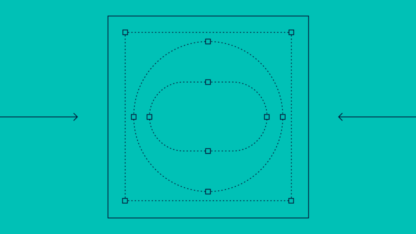Wonder Why Fraudsters Are Still Ahead in the Arms Race?
When we onboard new colleagues at SEON, who come from outside of the industry, one of the first things they are surprised about is just how much and how lively internet cybercriminal communities are. If you were an aspiring fraudster, you would need to spend a few hours googling stuff, and you’d learn everything you need to know with various services available to you.
We’re not talking about the spooky corners of the dark web: by 2021, a lot of this is out in the clear.

Meanwhile, if you run an online business, the first time you’ll hear about fraud is when the chargebacks start kicking in. You would need to spend weeks researching the right fraud detection features, spend quite a lot of resources on integration, and even then it would take you months to establish best practices to protect your bottom line.
This situation is less than ideal: while we are under a digital transformation, it seems that the fraudsters are running laps around us.

Knowledge Sharing Shouldn’t Be Just For Fraudsters
At SEON, that’s what we try to overcome: as a young company we were facing a similar problem, and throughout the years we have been striving to create material to cover this knowledge gap.
Our articles, podcasts and webinars or guides, not to mention case studies with useful practices are a veritable knowledge hub for any company trying to understand the nature of cybercrime and how to tackle it.
But we can still do better.
When it comes to information and knowledge sharing about anti-fraud, there is a limited number of professional networks. These are either focused on a specific area such as ACFE, or are born out of industry-specific needs.
Members of these organisations understand the benefits: adapting to changing regulations for example is such an area where every player gains if they follow the same set of best practices. Being alert to emerging fraud threats protects not only their businesses but their customers as well, as they can create “network-wide” blocks on schemes that otherwise wouldn’t be caught with simple blacklisting.
Yet despite the fact that most online companies are targets of fraud, they are not part of such knowledge sharing organisations, while the cybercriminals are openly discussing how to best scam them.
Facing New Challenges Requires a New Attitude
The fraudsters are at an advantage because they were nimble enough to adapt to new communication platforms and technologies, while companies are still lagging behind. There are many reasons for this:
- A conservative attitude: companies don’t see the immediate benefit in partaking in such knowledge sharing, many preferring to keep their best practices secret, thinking of it as a competitive advantage
- No established protocols on what is and what isn’t okay to share: with data protection and non-disclosure agreements acting as barriers
- Reckless attitude towards risk-taking: when capital is abundant and the company is growing rapidly, there is often little incentive to look under the hood
- Being blindsided after building out their in house risk stack: companies think that their fraud is completely unique to them, whereas criminals don’t think this way, they only look at opportunities to exploit
Both of these put the company’s interest first and foremost.
Secondly, at the heart of risk operations are the fraud managers – the people working the day to day operations, coming up with clever processes and procedures to block innovative fraud attempts. Within companies, they already teach each other, but at the present moment, they have no professional community for sharing knowledge and best practices, a place where they could build a common understanding of their craft.
Change is in Our Collective Long Term Interest
Having a professional peer network available is immensely beneficial for an individual, but it pays dividends to the company as well.
Knowledge and skill-sharing save time on training and allow best practices and innovative solutions to spread more quickly across industries.
This translates to better consumer protection and increases user trust, as the players involved in supporting such a network show that they are eager and proactive about preventing fraud.
Furthermore: the rule of thieves is that they won’t share their most lucrative schemes, as competition would spoil the available bounty. This means that information about the real heists are stuck in information silos at various companies, and once caught, criminals can just move on to the next target – hurting not just bottom lines, but innocent customers as well in the process.
The time is right to build out the next generation fraud fighter platform, to turn the tables on fraudsters, or at least to level the playing field in terms of information sharing.
We are probably not alone in thinking along these lines – so if such a platform is something you would be interested in, please share and discuss this idea.
And sign up to our newsletter down below – we’ll keep you posted about further developments.








